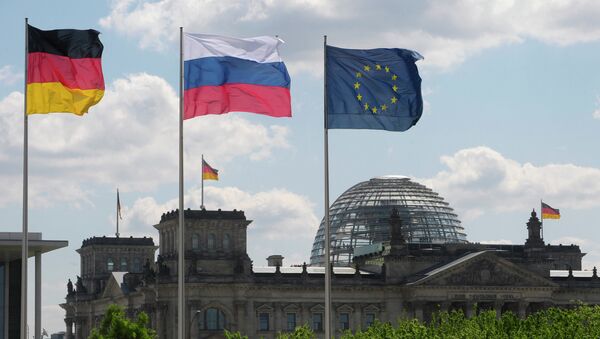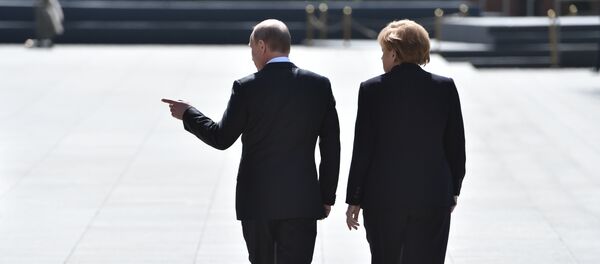"Our relationship still has a big potential," Matthias Platzeck said. "It has developed into a centuries-old partnership that has seen good times and terrible wars."
The two countries have emerged from crises even stronger than before, he said, adding that Germans would never forget the role that the Soviet Union played in reuniting Germany.
The former leader of Germany’s second-placed Social Democratic Party (SPD) and the ex-president of Bundesrat said, however, that Russia’s historical ties with Germany were no guarantee for its return to a partnership with Europe after the breakdown over Ukraine and a series of anti-Russia sanctions.
"Understanding requires a continued dialogue and good cooperation projects. Sanctions are hindering them," Platzeck explained, adding this was the reason why he opposed sanctions against Russia from the very beginning.
This is not the first time when representatives of German authorities and companies voice opinions that the anti-Moscow sanctions should be lifted.
On January 22, Chairman of the Munich Security Conference Wolfgang Ischinger said that German companies would like to see the Western sanctions against Russia lifted today, not in a year. President of the German-Russian Chamber of Foreign Trade Dr. Rainer Seele expressed similar opinion in December.
Many German enterprises have stayed on in Russia because of its importance as a trade partner even after Europe imposed sanctions on Moscow, Matthias Platzeck, the head of the German-Russian Forum, told Sputnik.
The German-Russian Forum is a bilateral initiative that promotes political, civil society, cultural and scientific contacts between the two countries.
"Our work of building bridges also sets the pace for [cooperation in] economy. Unfortunately, there have been losses due to sanctions," Platzeck, the former leader of Germany’s Social Democratic Party (SPD), said. "Still, [German] enterprises are staying in Russia because they know what a valuable trade partner this country is for us and for Europe."
In 2014, the United States and European Union acted in concert to impose a series of economic sanctions on the Russian energy, banking and defense sectors, after expressing outrage over Crimea’s reunification with Russia.
Moscow has refuted the allegations, warning that the Western sanctions are counterproductive. In response to the Western restrictive measures, in August 2014, Russia announced a one-year food embargo on products originating in states that imposed sanctions against it. The ban has since been extended for another year.


